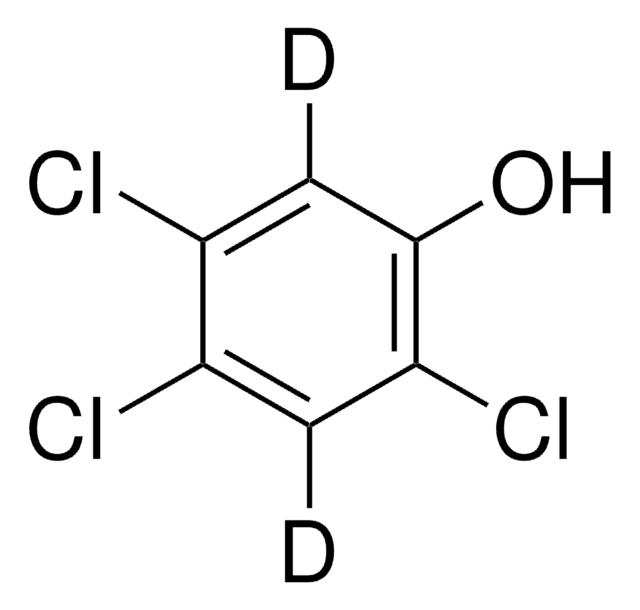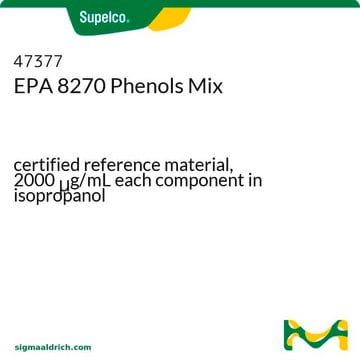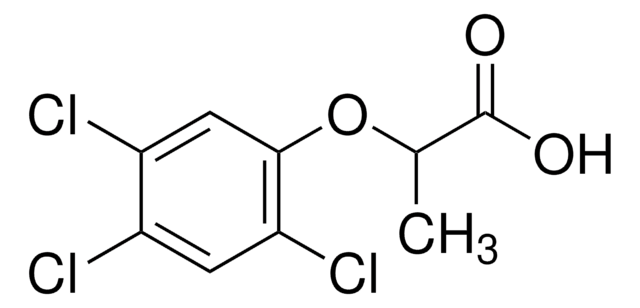36513
2,4,5-Trichlorophenol
PESTANAL®, analytical standard
About This Item
Productos recomendados
grade
analytical standard
product line
PESTANAL®
shelf life
limited shelf life, expiry date on the label
technique(s)
HPLC: suitable
gas chromatography (GC): suitable
bp
248 °C/740 mmHg (lit.)
mp
67-69 °C (lit.)
application(s)
agriculture
environmental
format
neat
SMILES string
Oc1cc(Cl)c(Cl)cc1Cl
InChI
1S/C6H3Cl3O/c7-3-1-5(9)6(10)2-4(3)8/h1-2,10H
InChI key
LHJGJYXLEPZJPM-UHFFFAOYSA-N
¿Está buscando productos similares? Visita Guía de comparación de productos
General description
Application
Recommended products
Legal Information
Disclaimer
signalword
Warning
hcodes
Hazard Classifications
Acute Tox. 4 Oral - Aquatic Acute 1 - Aquatic Chronic 1 - Eye Irrit. 2 - Skin Irrit. 2
Storage Class
11 - Combustible Solids
wgk_germany
WGK 3
flash_point_f
271.4 °F - closed cup
flash_point_c
133.0 °C - closed cup
ppe
dust mask type N95 (US), Eyeshields, Gloves
Elija entre una de las versiones más recientes:
¿Ya tiene este producto?
Encuentre la documentación para los productos que ha comprado recientemente en la Biblioteca de documentos.
Nuestro equipo de científicos tiene experiencia en todas las áreas de investigación: Ciencias de la vida, Ciencia de los materiales, Síntesis química, Cromatografía, Analítica y muchas otras.
Póngase en contacto con el Servicio técnico








